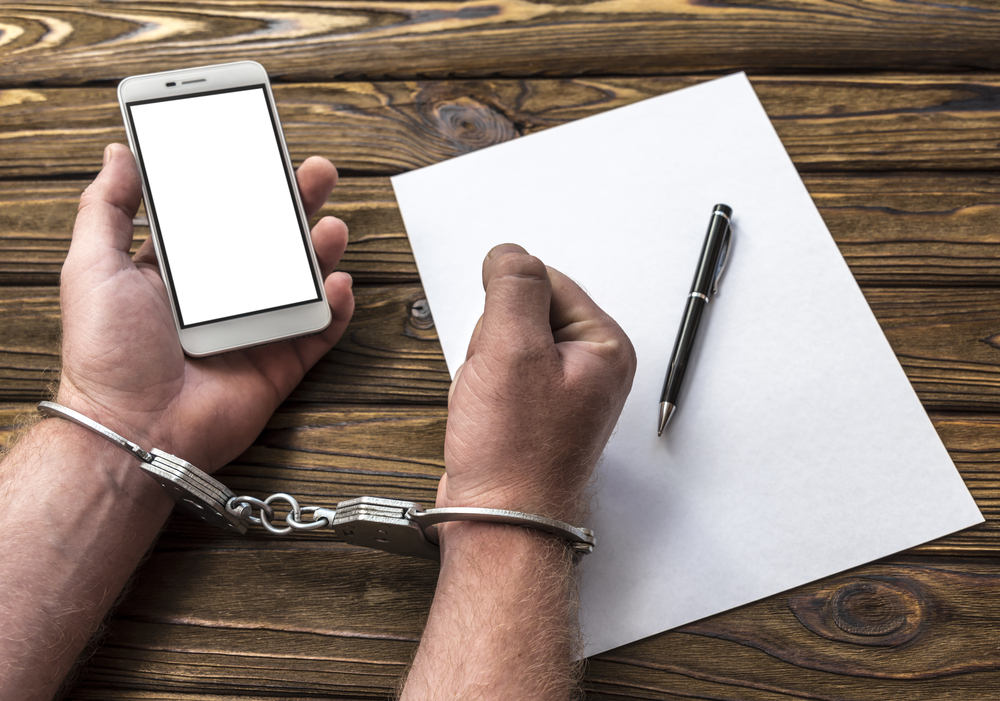Share This Article
NSW Police are often seizing mobile phones (and other items) from people suspected of crimes, including those that are bystanders, who record an incident which they are not even involved in.
The digital era, with the regular use of smart phones, which allow people to record footage and photos wherever and whenever, has resulted in more and more people’s phones being seized by police.
Smart phones and smart devices carry sensitive and significant personal information which people often rely on, on a daily basis. One can imagine the significant inconvenience (and privacy issues) resulting on an individual who’s phone is taken away by police, often for lengthy periods of time.
For those reasons, perhaps the law on police powers to search and seize smart devices need to be revised.
Police Powers to Take Possession of your Phone After a Lawful Search on You
The NSW Police are given certain powers under the Law in NSW to carry out searches on people, and includes detaining and seizing items found on those people searched. An illegal exercise of those powers can result in charges being dismissed in court.
However, while these powers are given to police under the Law enforcement (Powers And Responsibilities) Act 2002 (NSW), also known as “LEPRA”. Those powers do not allow police to detain and seize items (such as a mobile phone) from you, without lawfully searching you first.
In other words, if there is no lawful search done on you first, the police cannot take your mobile phone under those powers.
Important Things You Should Know About These Police Powers
- You are not required to necessarily be a suspect to an offence for police to exercise these powers to search you (and seize your phone).
- Powers of police to search and take anything found on you appear to also allow police to seize your phone, even where it’s unrelated to the original purpose of the search. For example, where police search you after forming a reasonable suspicion you have drugs on you, but end up finding a phone which may lead to evidence of the offence.
- Powers to search, and take anything found on you from a search, further extend to allow police to seize your phone if it may be relevant to another offence committed by someone other than you.
The below are police powers under the law which allow a police officer to take and seize your mobile phone, only after a lawful search is done on you beforehand.
Section 21 LEPRA- Police Power to Seize Your Phone After a Personal Search Without an Arrest
This power allows police to take your phone, without you being arrested, but after a lawful search is done on you without a warrant.
Under section 21 of LEPRA, a police officer can take “a thing” (which can include your mobile phone) from you if it was found on you after you were lawfully searched (there the phone was found from that search), and only where the police officer suspects on reasonable grounds that:
- Your phone may provide evidence of an offence; or
- Your phone is stolen or unlawfully obtained.
The police can lawfully search you without a warrant if the police officer first suspects, on reasonable grounds, that any of the following circumstances exist:
- You have possession of anything in connection with the commission of an offence, which can include your phone if it can provide evidence of an offence; or
- You have possession of anything stolen or unlawfully obtained; or
- You have possession of a prohibited drug or plant.
Section 27 LEPRA – Power to Seize Phone After Personal Search & After Being Arrested
This power allows police to take your phone, during or after you’re arrest, and after a lawful search is done on you (with or without a warrant).
Section 27 of LEPRA allows police to take your mobile phone from you in those circumstances only after you’re lawfully searched, where your phone is found from that search, and where the phone:
- Would present a danger to anyone; or
- Could be used to help a person escape custody from police; or
- Will provide evidence of an offence; or
- Was used or intended to be used, or is connected with an offence
The police can only search you, without a warrant and after (or during) your arrest, if the police officer suspects on reasonable grounds that he/she should search you to find out whether or not you’re carrying anything in relation to those 4 points.
Section 28A LEPRA-Power to Seize Phone After Personal Search & After Being Arrested
Section 28A of LEPRA gives the police power to take “anything found” from searching you, including your phone, after you’ve been arrested, and during the time you are in lawful custody of police.
This is a very broad power because it says “anything”.
When Can Police Arrest You Without a Warrant?
Under section 99 LEPRA, police can arrest you without a warrant in the following circumstances:
- Where the officer held a basis to form a reasonable suspicion that you are committing, or committed an offence; and
- Where the police officer believed the arrest is reasonably necessary for any one of the following purposes:
- To stop the commission of the offence;
- To stop you from getting away;
- To allow enquiries to establish your identity, if it wasn’t already readily established;
- To ensure you appear before a Court in relation to the offence;
- To obtain property in your possession that’s connected with the offence;
- To preserve evidence or prevent fabrication of it;
- To prevent harassment or interference with other witnesses;
- To protect the welfare or safety of anyone;
- Due to the seriousness and nature of the offence.
If the Court finds that the police officer didn’t have sufficient basis to form a reasonable suspicion to search you (or in case of an illegal arrest), then any evidence obtained from a search done illegally may end up being thrown out- resulting in dismissal of charges against you.
Police Powers to Take Possession of your Phone Without Conducting a Search on You
There is no legislation in NSW that actually allows police to take your phone from you, without you being lawfully searched first.
Can Police Seize a Bystander’s Mobile Phone?
There appears to be a common law power, established over the years, from past cases that gives police the power to seize items from people not suspected of committing an offence, and without the police having to first conduct a lawful search.
The Decision of Ghani v Jones [1970] 1 QB 693 appears to allow police to take items from you (including a phone), without a warrant, and without the need for police to arrest you in the following circumstances:
- The police officer must believe on reasonable grounds that a serious crime has been committed; and
- The police officer must believe on reasonable grounds that the item on you is either:
- The fruits of a crime; or
- Used in the crime; or
- Important evidence to prove the crime; and
- The police officer must believe on reasonable grounds that your refusal to hand over the item at the police request was “quite unreasonable”; and
- The police must not keep the item, nor prevent its removal for a period any longer than what is reasonably necessary to complete the investigations, or preserve the evidence; and
- Determining whether this power for police to seize the item (or your phone) was lawful, is to be judged at the time it was taken by police.
Examples of What Would be a “Quite Unreasonable” Refusal by a Bystander
A “quite unreasonable” refusal to hand over your property to police could include the following circumstances:
- You refuse to allow police to examine your phone, in circumstances, where it was earlier stolen and used in connection with a robbery. The police want to examine the phone for fingerprints or access it’s call history during the period of offending.
- It may be unreasonable to refuse the police to examine your phone where the police wish to examine footage you took from it, in relation to an alleged offence. That footage would likely contain relevant evidence in respect to the investigation.
Police Powers to Seize Your Phone under a Warrant
Under section 49 of LEPRA, the police can seize and detain your phone or smart device, under a valid warrant. The police can do this, if the person executing the search warrant has reasonable grounds to believe the phone or smart device is connected with any offence.
When Must Police Return Seized Items?
Under section 218 LEPRA, police must return the item back to you if he/she is satisfied:
- The continued possession of the item as evidence isn’t required; and
- It is not illegal for you to have possession of it.
Court Order to Have Item(s) Returned
Under section 219 LEPRA, you can make an application in court for the court to make an order that the item seized by police be returned.









